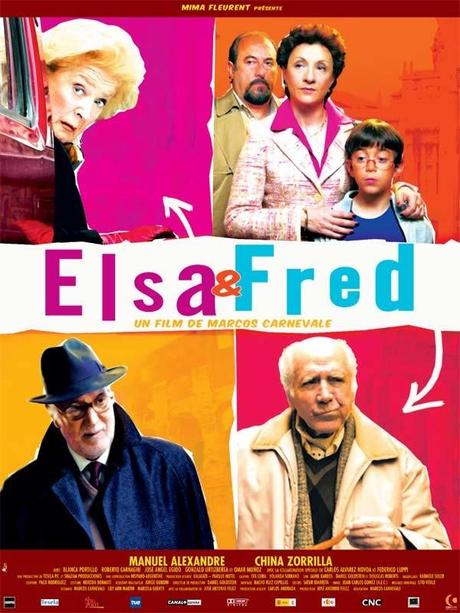
Released July 28, 2005
I've long had Elsa y Fred (2005) in my Netflix queue (the Spanish-language film). But with the recent release of an English-language adaptation, I decided to finally get around to viewing the original.Manuel Alexandre plays the reliable, quiet Fred opposite China Zorrilla's impulsive Elsa. They meet when recently widowed Fred moves into the same apartment as Elsa.
Elsa lives in the moment, pursuing pleasures and contorting the truth to suit her needs. Fred lives in constant fear that something bad might happen, so he is very risk averse. Elsa is constantly challenging him to loosen up, seize the day and enjoy life--starting with enjoying her company.
While their relationship provides regular conflict, they also have to manage outside forces. Elsa and Fred both have adult children who are trying to manage their lives--for good or for ill.
From time to time, they have to remind their children that they are adults who deserve privacy, respect and independence. His daughter and her son have a hard time complying.
A significant tension, however, exists between their contrasting ways of tackling life. Using Freud's theory of the id, ego and superego, Fred is a symbol for the adult energy of the superego. Elsa symbolizes the childlike energy of the id.
A similar allegory exists in the Czech-language film Autumn Spring (2001) where the husband is the carefree one and his wife serves as his overly responsible foil.
This above trailer lacks English subtitles, but the DVD I rented had subtitles.
I enjoyed the film very much, even when wincing a few time over Elsa's antics. It's fun, insightful and sweet.
Related:
Films about Aging A-L
Movies about Love and Sex for People 50 Plus

